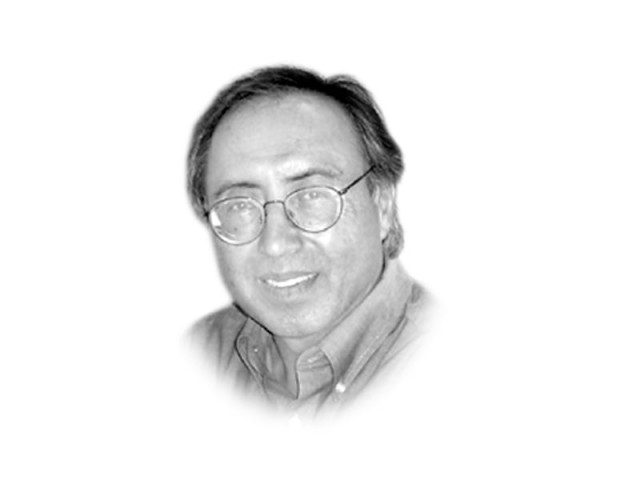Loss of legitimacy
The politics of reconciliation means is the two mainstream parties will not be subjected to inquiries of corruption

The writer is a professor of political science at LUMS
The legitimacy or right to be in power is measured both by the electoral plurality of the party, and more importantly, by its performance. Electoral politics in the social and cultural climate of Pakistan has dynamics that don’t easily lend to a sensible explanation. The interplay of caste, tribe, social standing of land-owning classes and patronage politics are some of the decisive factors. Honesty, integrity, service to the community, respect for law or regard for public interest count the least. The ruling groups that dominate political parties and electoral politics from one corner of the country to another have similar social roots — they are products of agrarian-feudalistic social relations. The persistence of old power structures is the reason for the lack of any change in the performance end of political power. True, the rural and urban middle class has expanded and continues to be on the rise, but it has yet to make its mark on the leadership pattern in party politics.
All present governments in the provinces and at the centre face a legitimacy crisis though in varying degrees. There is hardly any valid or convincing defence of their many failures ever since they have come into office. The biggest failure is in the conduct of accountability of the corrupt within the ranks of political parties and sitting members of the provincial and national assemblies. The politics of reconciliation has a very strange meaning in the media and in the political narratives of Pakistan. What it means is that the two mainstream parties and their close allies will not be subjected to inquiries of corruption and with regard to mega scandals of the past, present and future. Together, they have not allowed the institutions of law, justice and accountability to function independently. Their appropriation of power over the police, the FIA, and to some degree, NAB has turned the rule of law and justice on its heads. Some activation of these agencies in recent months on their own or through some prodding from the security establishment raises the hope that they will re-establish their writ. That is not going to be easy because the ruling groups of Pakistan have made the legal and judicial system dysfunctional.
The ruling groups have lost legitimacy for three reasons: the chief among them is their systematic corruption at massive scales, unseen or unheard of, in the previous decades. They have done this by crippling the rule of law, which is the second reason. They all stand above the law, and not under it. At every step in the bureaucracy and in every department of the government where there is public dealing, corruption, misuse of power and decline of governance hit citizens in the face. The hollow claims of doing better hardly convince anyone.
Finally, the dynastic politics and the multiple rings of cronies around the ruling dynasties, keep the political order closed, corrupt and crumbling. Across the apparent political divide, there is remarkable solidarity among the ruling group that can be seen through the politics of ‘reconciliation’. Corrupt ‘democrats’ have no legitimacy but the irony is they have the numbers, the political power and hold on institutions to stay put. The widespread dissatisfaction is yet to translate into an organised force for change.
Published in The Express Tribune, September 17th, 2015.
Like Opinion & Editorial on Facebook, follow @ETOpEd on Twitter to receive all updates on all our daily pieces.














COMMENTS
Comments are moderated and generally will be posted if they are on-topic and not abusive.
For more information, please see our Comments FAQ